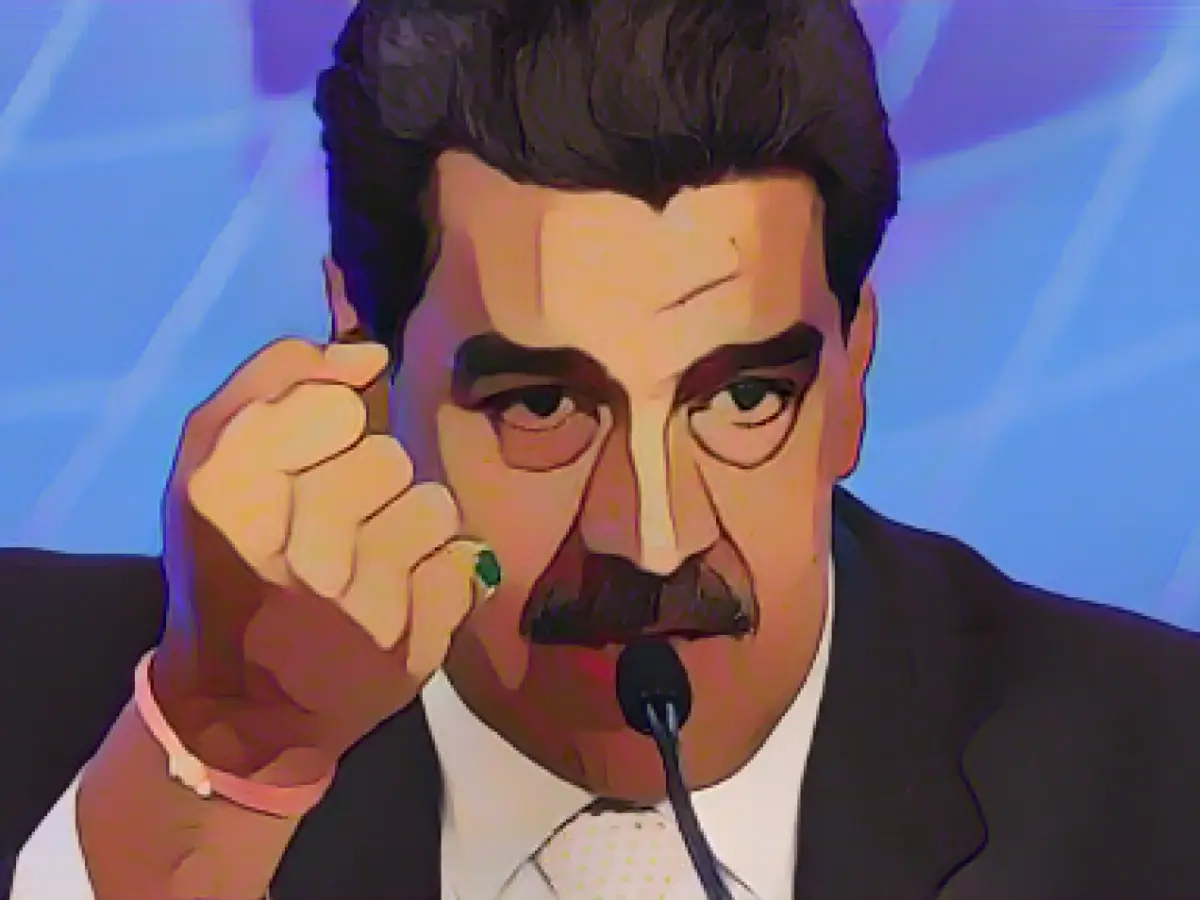Conflicts - Border dispute: Venezuela's Maduro orders military exercise
Venezuela's President Nicolas Maduro has ordered a military exercise in the dispute with neighboring Guyana over the oil-rich Essequibo region in response to a warship sent by the UK.
More than 5,600 members of the armed forces were to hold a "defensive" exercise off the east coast of the country near the border with Guyana, Maduro said in a televised address. The exercise was a response "to the provocation and threat of the United Kingdom against the peace and sovereignty of our country", said Maduro.
Background to the conflict
The background is a dispute over the Essequibo region in western Guyana. Venezuela has long laid claim to the resource-rich area, which covers around two thirds of the neighboring country. On December 3, Maduro held a controversial referendum in Venezuela in which, according to official figures, 96 percent of participants voted in favor of the annexation of "Guayana Esequiba" as a Venezuelan federal state. This raised fears that Venezuela could invade the region and trigger a war.
According to British media, the UK has sent a warship to Guyana in recent days as a sign of support for the Commonwealth state. The Royal Navy patrol ship "HMS Trent" will visit the regional ally and Commonwealth partner Guyana, according to the British Ministry of Defense. On Thursday, the Venezuelan Foreign Ministry described the ship as a "threat" to peace and stability in the region.
Crisis talks two weeks ago
Just two weeks ago, the presidents of Venezuela and Guyana met for crisis talks and agreed to renounce violence. Any controversy over the territory claimed by Venezuela in Guyana should be resolved in accordance with international law, including a 1966 agreement with the United Kingdom on the then colony of British Guiana, the joint statement said.
The current borders were established in 1899 in an arbitration award by a tribunal in Paris, which was initiated by the USA and Great Britain. Venezuela refers to an agreement with the United Kingdom from 1966 - a few months before the then colony of British Guiana became independent. This provided for a negotiated solution to the dispute. The International Court of Justice (ICJ) is dealing with the case at Guyana's request, but Venezuela rejects its jurisdiction.
Immense oil reserves were discovered off Guyana's coast in 2015. This has now given the English-speaking country - previously one of the poorest in South America - the world's highest economic growth.
Read also:
- Year of climate records: extreme is the new normal
- Precautionary arrests show Islamist terror threat
- UN vote urges Israel to ceasefire
- SPD rules out budget resolution before the end of the year
- The border dispute between Venezuela and Guyana has escalated, leading Venezuela's President Nicolás Maduro to order a military exercise near their shared border.
- This military exercise, involving over 5,600 members of the Venezuelan armed forces, is a response to the UK sending a warship to support Guyana during the conflict.
- The dispute centers around the oil-rich Essequibo region, which Venezuela claims as its own, causing tensions with neighboring Guyana.
- In an attempt to deescalate the situation, both presidents of Venezuela and Guyana had crisis talks two weeks ago, agreeing to resolve the dispute through international law.
- However, Великобритания (Great Britain) has continued to support Guyana, further fueling tensions, as Venezuela views this as a threat to its sovereignty.
- Despite ongoing diplomatic efforts, the situation between Venezuela and Guyana remains volatile, with oil reserves and territorial claims serving as major points of contention.
Source: www.stern.de








